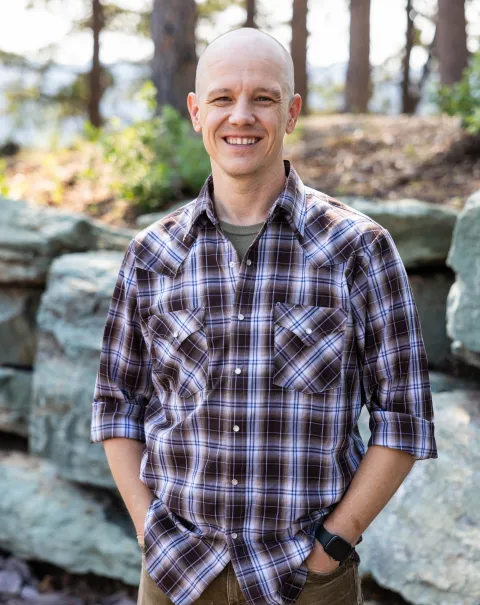Travis Sandland
CAC Member St. Paul, MN
Travis Sandland was born and raised in northern Minnesota and has been active in science education reform for the past 20 years. He began his career at the Science Museum of Minnesota (SMM) after graduating from Macalester College with a Bachelor of Science in Geology and a Physics minor, and earning his masters in Geological and Environmental Sciences from Stanford University. As the Youth Program Manager in the Kitty Andersen Youth Science Center, the museum’s youth development program, he worked with youth traditionally underrepresented in STEM careers. He also worked as an Earthscapes Outreach Teacher, collaborating with researchers at the University of Minnesota's National Center for Earth Surface Dynamics to translate their work into experiences for students and teachers.
Since 2006, Travis has been part of the IDEAL Center at SMM which provides professional development services for K-12 STEM teachers and leaders, college STEM faculty, and informal STEM educators locally, regionally, and nationally. Travis has been senior personnel on four major awards from the National Science Foundation, including co-principal investigator for the Peer Alliance for Gender Equity (PAGE) (NSF GSE #1102903). With PAGE, he worked to build the capacity of district education leaders in science, technology, engineering, and mathematics (STEM) to provide professional development to K-12 STEM teachers in research-based, gender-sensitive pedagogical classroom practices. Currently, he is serving as Primary Investigator for iPAGE 2.0: Understanding and Supporting Transformative Change Toward Equity in the ISE Sector (NSF AISL #2011859), the overarching goal of which is to support transformative change toward inclusion, diversity, equity, and access (IDEA) in the Informal STEM Education (ISE) sector.
Travis is particularly interested in working to bring about epistemological alignment of research, evaluation, and programs through consistent application of systems thinking and principles of adaptive change, and recognition that a critical examination of the Nature and Culture of STEM is an essential part of realizing IDEA within formal and informal STEM education.
